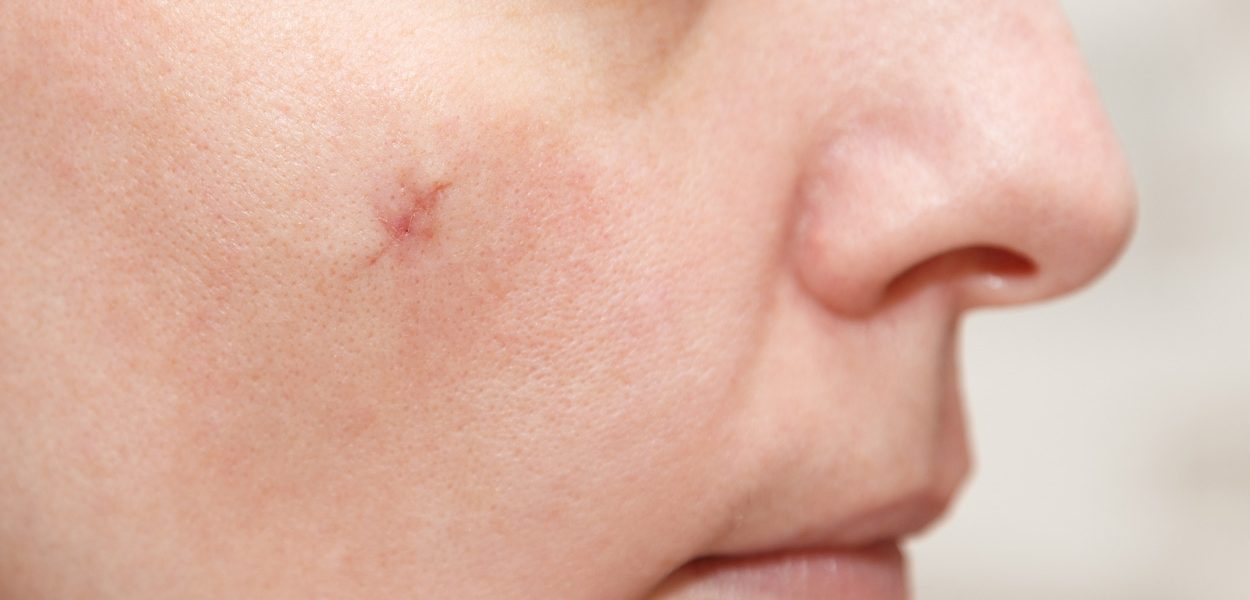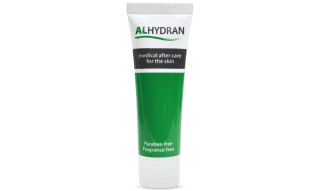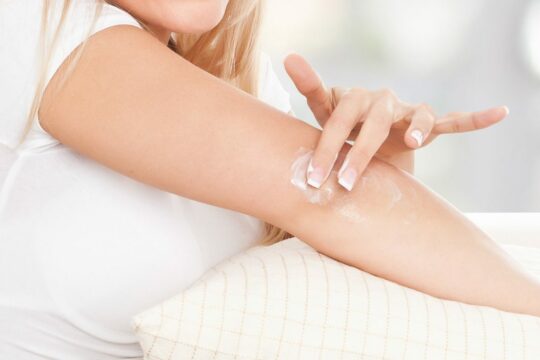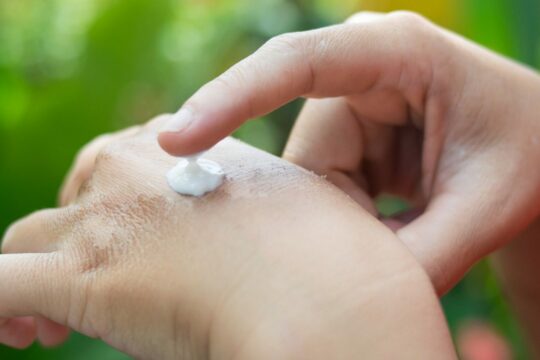How to treat small scars on your face
Even a tiny facial scar can easily catch your eye, even if others hardly notice it. Because facial skin is thin and exposed, these scars often need extra care. Your skin can still repair itself, especially when you support it with the right routine. Hydration, sun protection and gentle care help the skin stay calm, flexible and balanced. To understand how to care for them properly, it helps to know how facial scars differ from scars on other parts of the body.
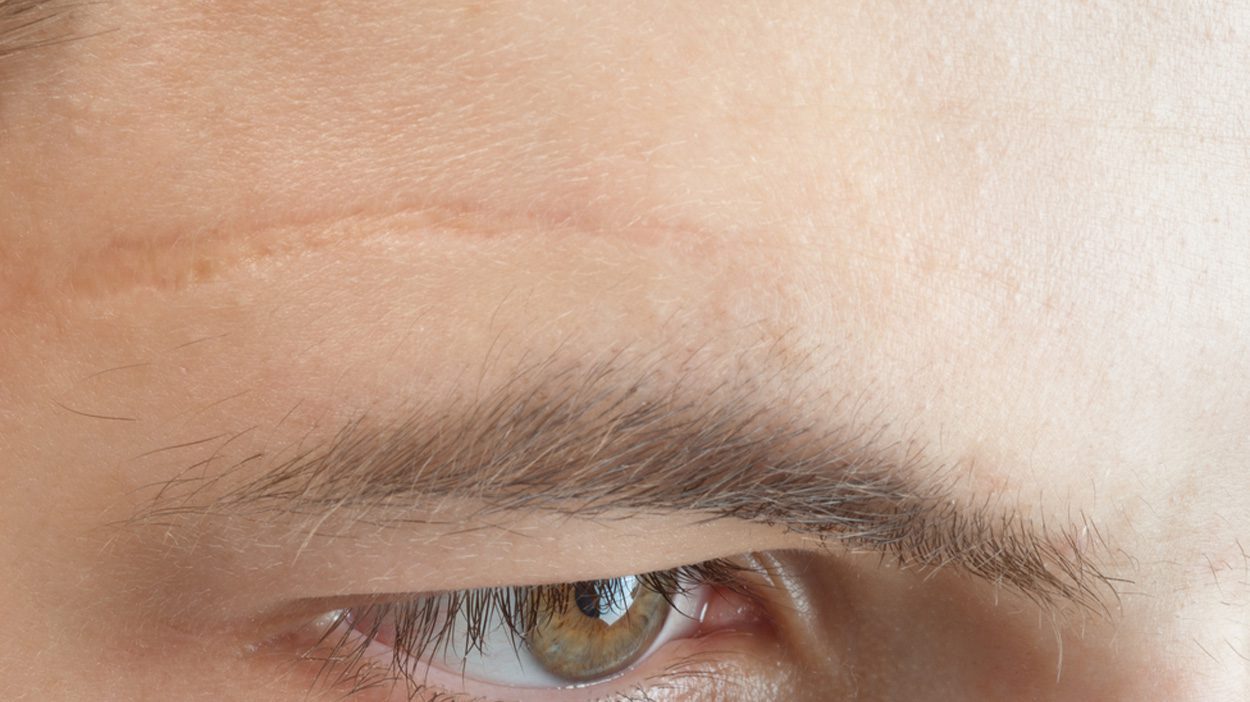
How facial scars heal differently
Facial scars often heal faster than scars on other parts of the body. This is because facial skin has a richer blood supply and more oil glands, which help keep the skin naturally hydrated. However, even small scars on the face can still lose moisture more quickly and feel dry or tight.
Another difference lies in movement and tension: scars on the shoulders, chest or knees are more likely to thicken because those areas move more and stretch the skin. Facial scars, in contrast, are usually fine and follow natural skin lines, which reduces tension during healing.
Proper hydration remains important, as all scars, even small ones, have a disrupted skin barrier and tend to lose water more easily. Regular use of a medical hydrating cream supports comfort and helps the skin recover its flexibility.
Why hydration matters for scars
Scar tissue behaves differently from normal skin. It loses moisture faster and can become tight, dry or itchy. Hydrating the skin helps restore flexibility and reduces these discomforts. Research has shown that hydration and occlusion are important in scar management, because they influence how the scar matures.
To help your skin restore its moisture balance, dermatologists often recommend a medical cream that keeps the skin hydrated and protected.
This type of product is known in clinical studies as a medical moisture-retention cream, a category ALHYDRAN belongs to.
A medical cream that supports scar recovery
Facial scars need gentle yet effective care. ALHYDRAN is a medical cream designed to keep scar tissue hydrated and comfortable, helping small scars fade and feel less tight.
It contains fresh aloe vera gel, combined with nourishing oils and vitamins that protect the skin and restore its moisture balance.
Because the cream is light and easily absorbed, it’s well suited for delicate areas such as the face.
Clinical research has shown that this combination helps reduce redness and itching, improves skin flexibility, and supports a smoother appearance over time.
Explore gentle care for facial scars
More ways to support small scar recovery
Caring for a small scar is not only about what you apply, but also how you look after your skin each day.
Research shows that small changes in your routine can make a visible difference:
1. Keep your skin protected from the sun
UV light can darken fresh scars and slow down the healing process. Using a high SPF (at least SPF 30) or a medical cream with built-in sun protection helps prevent permanent pigmentation differences.
Reading tip: When can I expose my scar to the sun?
2. Massage gently
Once the skin is closed and strong enough, gentle circular massage helps stimulate blood flow and keep the scar flexible. Studies show that combining scar massage with a hydrating cream improves softness and comfort.
3. Be consistent
Applying a moisturising medical cream several times a day keeps the moisture balance stable. Consistent care has a bigger impact on the skin barrier than occasional use.
Reading tip: When to start and how long to use a scar cream?
4. Avoid unnecessary tension
Facial scars are under constant movement. Try to limit mechanical stretching (for example by avoiding exaggerated facial expressions or shaving over the area) in the first months. Less tension means a flatter, smoother scar.
5. Give it time
Even small scars mature over months. Early care, patience and protection are key to achieving softer, less visible results.
Final thoughts on small scars
Caring for small scars is not just about the right cream. It’s about following a scar care routine that helps your skin recover naturally.
Protecting your skin from the sun, keeping it hydrated and flexible, and applying a medical cream consistently all contribute to better scar recovery and a smoother appearance.
